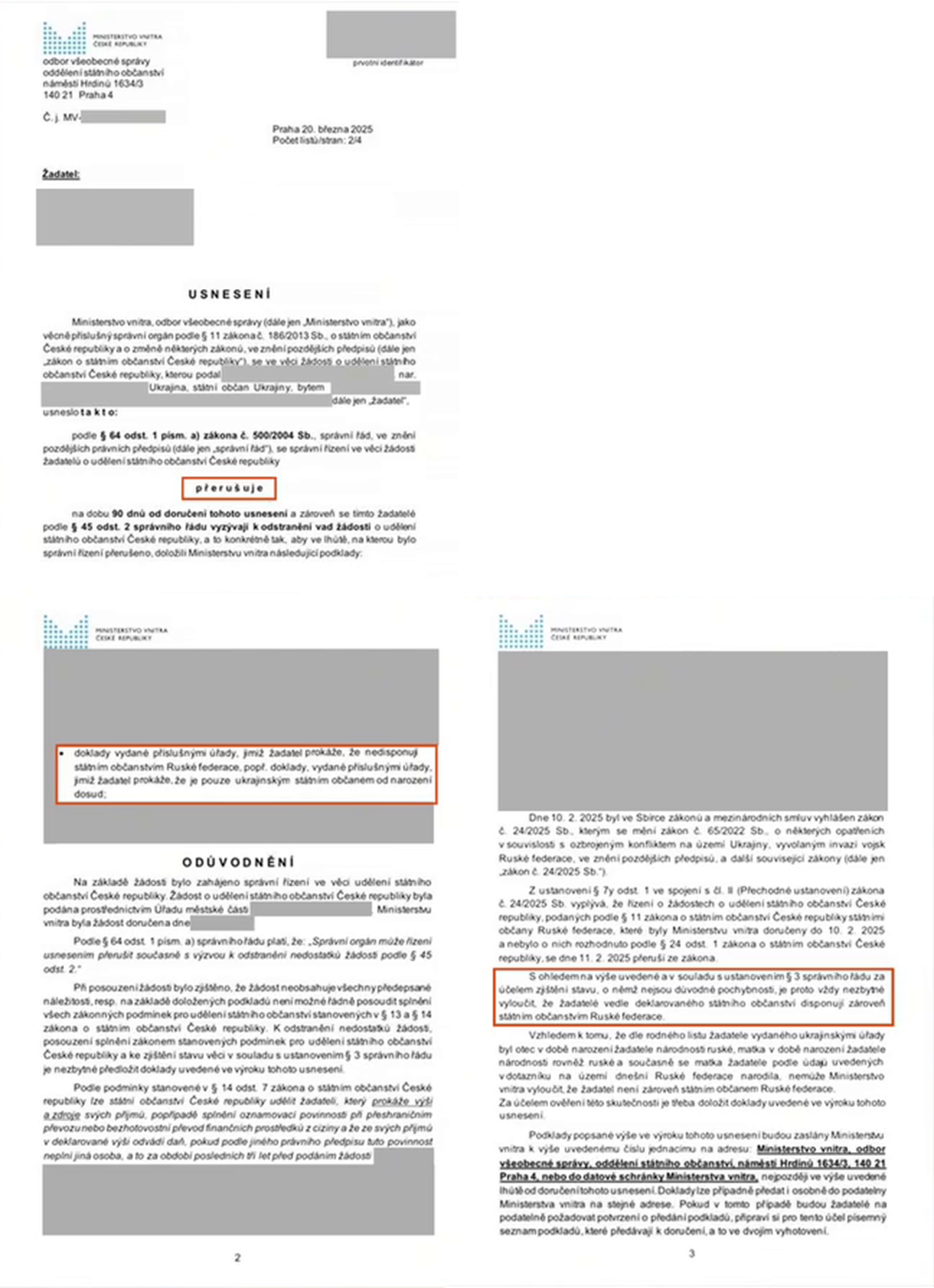When the amendment was passed, many people said that it would probably hit not only Russians but also other foreigners, and it happened even faster than we thought.
Anton Vaykhel, a well-known blogger, has published letters from Czech Ministry of Interior that his subscribers who have succumbed to Czech citizenship have received. They are not Russians, but citizens of Ukraine.
According to these letters, Ministry of Interior believes that if any of the applicant’s relatives were born or may have lived in the territory belonging to the modern Russian Federation, the applicant is obliged to prove that he or she does not have Russian citizenship (even if, for example, he or she was born and lived all his or her life in another country, such as Ukraine).

The problem is that the only way to prove the absence of Russian citizenship is to provide a certificate from the Russian consulate stating that a person does not have Russian citizenship.
The Russian consulate in Austria has already stopped issuing such certificates. In the consulate in Prague it is theoretically still possible to obtain such a certificate, but the queues for consular services can reach half a year and even more. In addition, the certificate is not free, i.e. MHRA literally requires citizens of other countries to pay money to the Russian budget in order to obtain Czech citizenship.
One of the arguments of our lawsuit filed in the constitutional court of the Czech Republic says that the amendment violates the sovereignty of the Czech Republic, because it de facto gives the right to Russian government agencies to decide who will become a Czech citizen and who will not. It will now be in their power to decide not only for Russians, but also for citizens of other countries.
This is another of the strong arguments saying that this discriminatory and unconstitutional amendment should be cancelled.